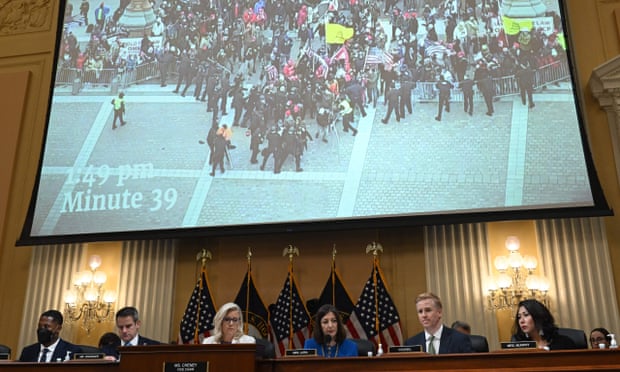Paul Tilsley
Thu, August 18, 2022
It is being called Africa’s Afghanistan, a land where militants linked to both al Qaeda and ISIS jihadists fester, reaping terror, death, displacement and despair. Named the world’s terrorism hotspot, a third of all terrorism-related deaths in 2021 spilled blood over this country’s dusty plains.
Some 2,700 have been killed in West Africa’s Mali in the first six months of this year, up 40% on last year. As the mayhem escalates in this region known as the Sahel, this week the last unilateral Western peacekeeping force was pulled – or was it pushed – out. Mali’s military junta is now letting Russia’s shadowy Wagner mercenary group reportedly run amok, with an ever-growing catalog of human rights abuses against Mali’s people.
"Is Mali Africa's Afghanistan?" Jasmine Opperman, a security consultant specializing in extremism and political violence, discussed with Fox News Digital. "Looking at its history, looking at the complexities of the driving forces, looking at international actors’ involvement aggravating the security situation and acting as a trigger mechanism for extremism, I think we can definitely conclude that based on the similarities, Mali can be considered as Africa's Afghanistan."

A protester holds a placard reading "France, gardener of terrorism" during a demonstration celebrating France's plans to withdraw troops from Mali, in Bamako, on Feb. 19, 2022. The last of the French troops left this week.
AFRICA: THE NEW GROUND ZERO FOR JIHADI TERROR GROUPS, EXPERTS SAY
Former colonizing power France withdrew the last of its 5,100 peacekeeping troops this week, with the insults of an ungrateful Mali regime freshly ringing in its ears, saying France’s President Macron should "permanently abandon his neocolonial, paternalistic and patronizing posture to understand that no one can love Mali better than Malians," spokesman Col. Abdoulaye Maiga said on local TV.
Mali has turned to Russia for help, allowing Moscow’s Wagner PMC or private military company to do its dirty work: "Violence against civilians in Mali has increased significantly since the Wagner Group’s arrival in December 2021," Catrina Doxsee, associate director and associate fellow of the Transnational Threats Project at the Center for Strategic and International Studies, told Fox News Digital.
Doxsee added: "The military junta in Mali, which gained power through a coup in 2021, has prioritized its own power and self-preservation above stability or civilian well-being, and it likely views the Wagner Group’s presence primarily as a tool for 'coup-proofing.' Since Russia and its affiliated PMCs have little concern over human rights abuses, they are appealing partners for an illiberal regime like Mali’s junta."
BLINKEN FLIES INTO 'SUPERPOWER' BATTLEGROUND IN AFRICA
The Russians are far from discreet. As the final French troops flew out of the northern Gao airport this week, two cargo planes landed and reportedly Russian military teams openly unloaded weapons.
Mali is said to be the most dangerous assignment in the world for its 12,000-strong U.N. peacekeeping force. "Since its deployment in 2013, more than 250 peacekeepers have lost their lives, 159 of them in hostile incidents, including IED attacks," the spokesperson for the United Nations' Multidimensional Integrated Stabilization Mission (MINUSMA) told Fox News from Bamako, Mali.

A U.N. armored vehicle that had been hit by an improvised explosive device
ISIS and al Qaeda relentlessly attack U.N. troops both out on patrol and back at their barracks. "The biggest threat remains the attacks by improvised explosive devices (IEDs) and mines against our convoys and patrols to protect civilians, especially in the northern and central parts of the country," the spokesperson said. "The mission camps have also become targets of terrorist armed groups using direct and indirect fire attacks against the U.N."
RUSSIA WAR WILL HAVE 'SHATTERING' EFFECT ON FOOD SHORTAGES IN AFRICA: 'YOU'RE GOING TO SEE GOVERNMENTS FALL'
MINUSMA’s own so-called explosive ordnance disposal teams search for and deactivate IEDs, but intelligence gathering is perhaps hampered in this deeply devious arena by a United Nations charter that prohibits clandestine intelligence work.
In a 2017 report on peacekeeping in Mali, Researchgate, a scientific research group, noted what it said was a clash of cultures between countries supplying their troops to the U.N.: "Marrying the Western and African capabilities turned out to be challenging due to incoherent procedures, systems, levels of experience as well as reporting mechanisms. In addition, information-sharing from classified NATO databases proved difficult", the report stated.
The Mali government doesn’t make it easy for the U.N. to help them. German Foreign Minister Annalena Baerbock accused the regime of having "torpedoed time and again" Berlin’s efforts.

Annalena Baerbock, Germany's foreign minister, talks to soldiers
This week, Germany suspended most of its operations in Mali, after the government denied flyover rights for Germany’s U.N. aircraft. In the last few days, Egypt has suspended its participation in Mali after seven of its soldiers were killed, and the local regime is still holding 49 Ivory Coast U.N. troops who were arrested when they turned up for duty in Bamako a month ago.
Ominously, last week the Institute for Security Studies’ Martin Ewi briefed the U.N. Security Council that Islamic State fighters fleeing Syria are "finding safe havens on the continent," and that Africa may be "the future of the caliphate".
Opperman is concerned the U.S., as in Afghanistan, may get drawn in: "We have a situation in Mali where superpowers have been sucked in or are withdrawing, we have seen now with France stepping aside, with Russia moving in, and who knows how the U.S. will respond to this."






